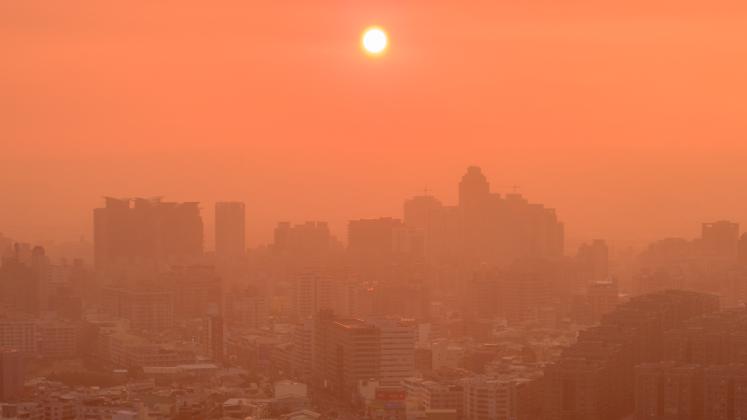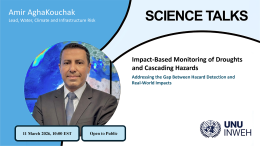Air pollution has long plagued cities throughout the world, with Jakarta, Indonesia recently topping the list. This problem is particularly severe in developing countries where cities are often clogged with inefficient and poorly maintained vehicles that compound other sources of black carbon (soot) pollution, such as cooking, heating, and burning waste. These air pollutants constitute a major environmental threat that has been recognized as one of the main risk factors for noncommunicable diseases, including acute respiratory infections affecting children.
The vast majority of people worldwide live in areas where air quality fails to meet the standards recommended by the World Health Organization (WHO). In 2019, only 0.001% of the global population had annual exposure to PM2.5 (particulate matter air pollution, 2.5 micrometers and smaller, which includes black carbon) below WHO’s annual average limit of 5 micrograms per cubic meter.
Dr. Tedros Adhanom Ghebreyesus, WHO Director-General, recently underlined that “only climate policies driven by health outcomes will result in the action needed to save lives, prevent disease, and build healthier, fairer societies.” Since air quality and climate change are so closely linked, policies addressing one issue can positively affect the other one.
It is well documented that air pollutants and carbon dioxide emissions associated with daily human activities — such as agriculture, energy production, industrial processes, residential heating and cooling, transportation and waste management — lead to degradation of air quality and intensify climate change. By clearly highlighting the health benefits of air pollution measures, policymakers and health advocates can provide additional impetus to clean energy access policies, which directly contribute to achieving climate targets. For example, action to limit sources of pollutants such as methane can deliver rapid benefits for both climate and health.
At the individual level, examples of win-win solutions include implementing energy efficiency measures at home, using efficient and clean stoves for heating and cooking, and using public transportation to reduce urban emissions.
Because air pollution and climate action represent “two sides of the same coin” they offer potential for cost synergies and achieving multiple SDGs through intersecting policy action. Yet governments are often not prioritizing this opportunity. Another challenge is that countries need help ensuring compliance and enforcement of existing regulations relevant to curbing air pollution and mitigating climate change.
But there are three significant ways we can overcome interconnected climate and pollution challenges: focusing on cities; investing in cross-sector energy efficiency and low-carbon technologies; and promoting inclusive, collaborative governance.
Cities are critical actors in driving climate ambition forward, in reducing air pollution and improving human health and well-being. If more cities tackle climate change and air pollution together, this will amplify collective efforts to limit the rise in global temperature to 1.5° C. As such, it is vital that today’s urban economies and infrastructure projects do not set cities on a path to high-carbon and high-pollution futures.
Addressing the root causes of air pollution and transforming cities will require long-term action. Transitioning many sectoral policies and strategies, such as housing, solid waste management or transport, towards a low-carbon economy will take years to reduce emissions in our built environment. Adopting cost-effective climate and pollution policies requires significant upscaling of investments in, and cooperation among, sectors with high potential to reduce the impact of climate change, such as energy, food, transportation and waste management. Although investments in energy efficiency and low-carbon energy supply are expensive, the combined costs of climate change mitigation, energy security and air pollution control come at a significantly reduced energy cost. Such concerted decarbonization strategies should go hand in hand with efforts to shift people’s behaviour toward pro-climate and anti-pollution choices.
Climate and health actions need to start immediately. For better air quality, cities, governments, businesses, civil society and other stakeholders need to do everything possible to cut emissions now. Collaborative efforts from multiple governing bodies can reduce divisions between air pollution and climate change in policy and governance. Meaningful engagement between governments, civil society, businesses and the people will strengthen integration across relevant policy areas. This is particularly important because, while implementing integrated climate and pollution policies is likely technically feasible in the near future, transformative changes in cities require solid political will supported by the people. More inclusive climate and pollution institutions and decision-making processes could generate integrated solutions with climate and health co-benefits.
Reducing the number of cities with severe air pollution would constitute a win-win opportunity to halt the impact of climate change and simultaneously protect human health. The COP28 climate talks now underway in Dubai should not miss the chance to build public support and catalyse national commitments and international funding to improve air quality and achieve climate and health co-benefits. It is about time that COP28 raises the political profile of the climate-health nexus and tackles both climate change and air pollution together to put an end to our global air quality crisis.
This article was first published by The Japan News to coincide with the 28th Conference of the Parties to the UN Framework Convention on Climate Change (COP28). It is republished here with permission. Read the original article on The Japan News website.
Suggested citation: Mahesti Okitasari. "Tackle Climate Change and Air Pollution Together," United Nations University, UNU Centre, UNU-IAS, 2024-01-03, https://unu.edu/article/tackle-climate-change-and-air-pollution-together.





